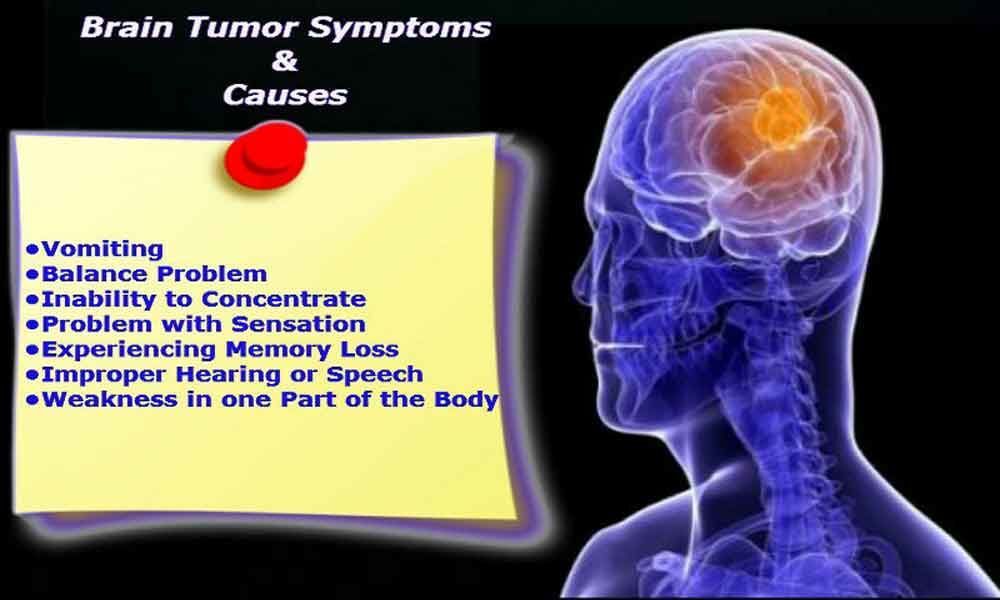Headache: Could it be brain tumour?

A common question from all of us is, are frequent and severe headaches a sign of brain tumour. It is true that a recurring headache can be an indication for brain tumour but it is equally important to know that tumour related headaches have distinct characteristics.
A common question from all of us is, are frequent and severe headaches a sign of brain tumour. It is true that a recurring headache can be an indication for brain tumour but it is equally important to know that tumour related headaches have distinct characteristics.
10 out of 1 lakh population may develop brain tumour during their lifetime, Irrespective of their age. But the terrifying news about the disease is, its symptoms are often disguised as everyday ailments like a headache or migraine.
Therefore it is important to know the hidden signs and symptoms of brain tumour so as to be aware and to get timely help. A brain tumour headache feels like a dull, throbbing or aching pain which is similar to tension-type headache or a migraine.
It increases with change in position, like the headache may increase during sleep or while coughing. One should also be watching out for dizziness, loss of speech, weakness or loss of sensation in an arm or leg, pressure in the back of the head and early morning awakening headaches.
One may experience deizures, where the person loses consciousness, their body goes stiff and they fall to the floor with their limbs jerking. If a person experiences seizures, he has to be rushed to the hospital for an MRI.
A headache which has the above symptoms should be a matter of worry and be brought under examination. Surgery is one of the main treatment options available following the diagnosis of a brain tumour. During a surgery, we try to remove the entire tumour or as much as it is safe to. Not all tumours can be operated on, as they may be too close to a sensitive area of the brain, e.g. that controls breathing or sight.
During the surgery, a large hole in the skull is made and this operation is called craniotomy where the complete removal of brain tumour is performed under general anesthetist with the help of Neuro Microscope.
Before the surgery, we will discuss with you, explaining the treatment plan, post-operative recovery, planning for radiation and chemotheraphy according to the biopsy report. After completing the treatment, a proper neuro rehabilitation plan will be provided and a follow up is mandatory for good treatment outcomes.
Please note that not all headaches are because of brain tumour. But, there is no harm in getting yourself checked to understand the root cause of your severe headaches. Once you visit us, we will help you move forward with the right treatment plan.
Tumour related headaches have distinct characteristics. Early morning awakening headaches, seizures and speech difficulty are the important symptoms. Surgery is one of the main treatment options where the tumour is resected. Not all headaches are because of brain tumour, but there is no harm is getting checked says Dr. Rajasekhar Reddy K , Consultant Neuro& Spine Surgeon Continental Hospitals.
(Writer is Consultant Neuro & Spine Surgeon, Continental Hospitals, Hyderabad)
By Dr Rajasekhar Reddy K










